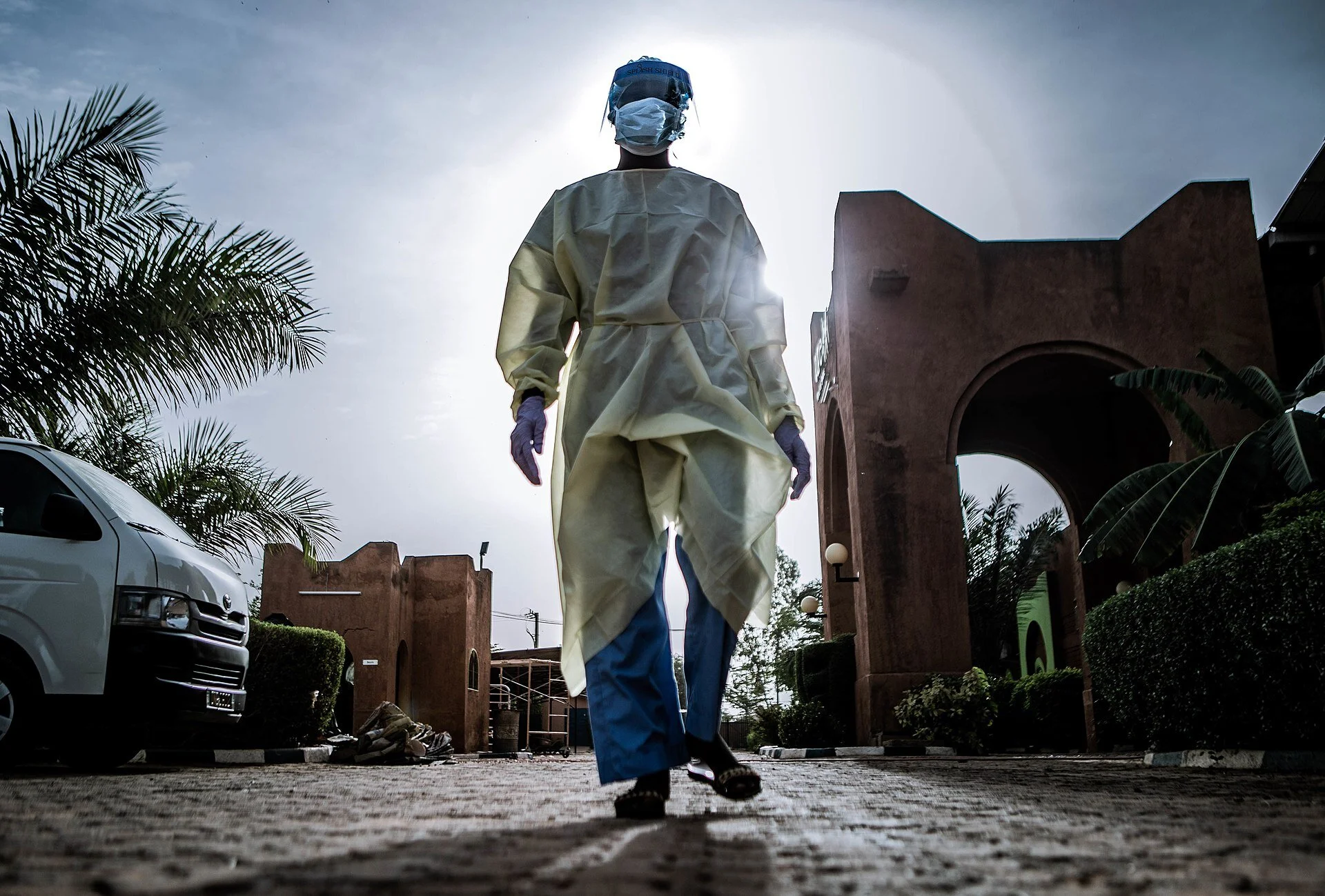WHO Warns of Major Fallout from COVID-19 in Africa
By: Julian Mok
Another CURE Niger nurse returning from her shift screening patients at the front gate. Photo by Anna.psiaki
Lexington — The continent of Africa lags weeks behind Europe and much of the world along the coronavirus curve, but a report has emerged from the World Health Organization (WHO) estimating devastating humanitarian losses in the continent’s future. Transmission has been relatively slow on the continent, but public health experts are warning that Africa needs to prepare for the worst.
The WHO report predicts smothering consequences from the coronavirus, a death toll that could reach 190,000 and 29-44 million cases of infection on a continent of 1.3 billion.
The continent has recorded 54,000 reported cases and deaths have recently topped 1,400. This suggests that the continent of 1.2 billion has suffered fewer COVID-19 deaths than the US suffers each day. Experts are torn between the reason for Africa’s relatively low case numbers – discussions that will have very different ramifications for public health policy in Africa.
Some experts believe that Africa demographics are a major explanatory factor for the low death rate. The median age in Africa is 19.4 years old, whereas in Europe, it is 40 years old. SARS-CoV-2, also known as COVID-19, has hit older demographics harder, disproportionately affecting those in their 60s, 70s and 80s.
It is possible that youthfulness has shielded many Africans from COVID-19’s grip. African countries have also been credited for springing into action, implementing and enforcing strict lockdowns, travel bans and even curfews in some cases.
Some of the enforcement measures have, however, been reported to do more harm than good, resulting in unnecessary police violence and avoidable deaths. In Kenya, police killed more people in the first week of the disease than the COVID-19 itself because of the strict enforcement measures; a pregnant woman died because she wasn’t allowed to go to the hospital after curfew.
Lockdown measures have also prevented many citizens from receiving treatment for AIDS/HIV; some experts are warning that deaths from AIDS/HIV due to interrupted treatment could top 500,000.
Along with the estimates from the WHO, the World Bank estimates that the country could experience a 2.6% decrease in economic growth and push 27 million people into extreme poverty in the worst-case scenario. Many citizens live on subsistence income and governments do not have the means to provide cash handouts to people who need it.
This would be Africa’s worst recession in 25 years on a continent that is already struggling to scrape together funds to pay for essential medical equipment like PPE, testing, ventilators and treatment. The continent has had trouble competing with other countries for in-demand goods; in April, they successfully won a bid for 400 ventilators to share over 54 countries.
The WHO report is very alarming for countries like Ethiopia, Tanzania, Sudan, Nigeria, Uganda and several others who have less than 10 hospital beds per 10,000 citizens.
With strict social distancing measures and the right medical equipment, the continent can hopefully see a much smaller death toll and fewer severe cases. Communities will also play a big role in the success of Africa’s fight against coronavirus. Tailors forming temporary settlements to sew face masks or translators using their services to create public service announcements for the thousands of languages spoken on the continent could make a difference.
Global leaders have come together with African leaders to help increase their chances of avoiding the predicted devastation.
Some have called on a moratorium on all African debt payments until the pandemic is over and at least $100 billion in immediate financial aid so that countries can purchase essential equipment. $44 billion is needed for testing, PPE and treatment alone, according to UNECA in the best-case scenario; the worst-case scenario of 1.2 billion infections would call for $446 billion in funds. These numbers are forcing African leaders to enforce strict measures despite a seemingly low number of cases and deaths. These measures unfortunately have their economic downsides, preventing millions from working to stay out of extreme poverty and have food to eat. Only time will tell if these trade-offs are the right move.

